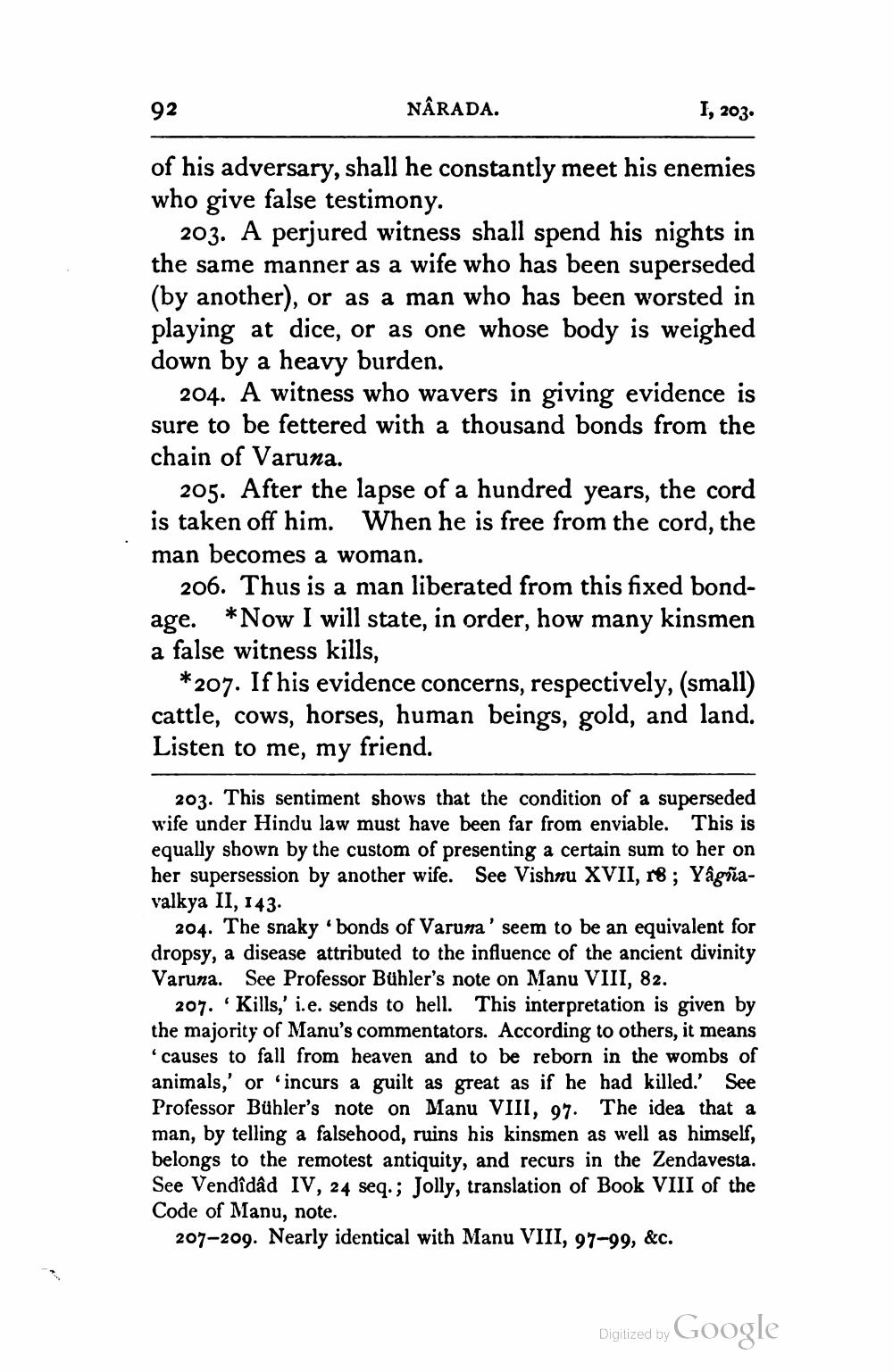________________
92
NÂRADA.
I, 203.
of his adversary, shall he constantly meet his enemies who give false testimony.
203. A perjured witness shall spend his nights in the same manner as a wife who has been superseded (by another), or as a man who has been worsted in playing at dice, or as one whose body is weighed down by a heavy burden.
204. A witness who wavers in giving evidence is sure to be fettered with a thousand bonds from the chain of Varuna.
205. After the lapse of a hundred years, the cord is taken off him. When he is free from the cord, the man becomes a woman.
206. Thus is a man liberated from this fixed bondage. *Now I will state, in order, how many kinsmen a false witness kills,
*207. If his evidence concerns, respectively, (small) cattle, cows, horses, human beings, gold, and land. Listen to me, my friend.
203. This sentiment shows that the condition of a superseded wife under Hindu law must have been far from enviable. This is equally shown by the custom of presenting a certain sum to her on her supersession by another wife. See Vishnu XVII, 18; Yagñavalkya II, 143.
204. The snaky 'bonds of Varuna' seem to be an equivalent for dropsy, a disease attributed to the influence of the ancient divinity Varuna. See Professor Bühler's note on Manu VIII, 82.
207. Kills,' i.e. sends to hell. This interpretation is given by the majority of Manu's commentators. According to others, it means 'causes to fall from heaven and to be reborn in the wombs of animals,' or incurs a guilt as great as if he had killed. See Professor Bühler's note on Manu VIII, 97. The idea that a man, by telling a falsehood, ruins his kinsmen as well as himself, belongs to the remotest antiquity, and recurs in the Zendavesta. See Vendidad IV, 24 seq.; Jolly, translation of Book VIII of the Code of Manu, note.
207–209. Nearly identical with Manu VIII, 97-99, &c.
Digitized by Google




